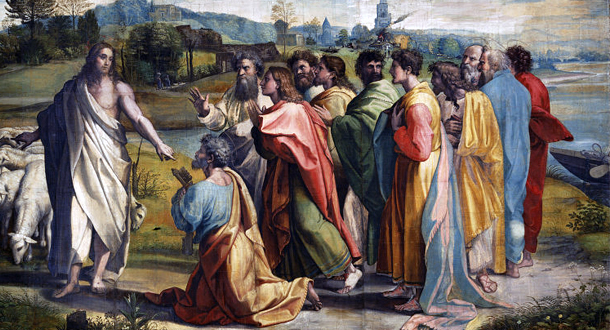 Scripture:
Scripture:
Reflection:
Jump in the Car! Let’s go! Trust me!
Faith requires us to go where we do not see the immediate result or end sometimes. Have you ever jumped in the car with someone just because you wanted to go? You had no idea where they were going but you had faith that you were going to be alright. That is what it is like following Jesus. When we were children, we did this very often with our parents. We knew they were going to take care of us. Jesus is like that parent to us now. He wants us to jump in the car and trust Him that everything is going to be alright. But we must admit sometimes we are like Thomas the apostle. He is always the one who questions Jesus and wants him to show him the way. I can read his mind right about now. He is probably saying, “You are always talking in rhymes and riddles, just tell us where you are going and how we can get there. Just show me.” But Jesus just tells him,” I am the way and the truth and the life; no one comes to the Father except through me.” This answer just leaves Thomas speechless and we don’t here from him again in the passage.
Jesus also tells us in John’s Gospel that, “In my Father’s house there are many dwelling places. If there were not would I have told you that I am going to prepare a place for you? And if I go and prepare a place for you, I will come back again and take you to myself, that where I am you also may be.” So what is this place like that we are suppose to go when we follow Jesus? We know that it is His Father’s house. We know that there are many dwelling places. We know that Jesus is going to prepare a place for us there. We know that He is going to come back and take us to Himself, so that where He is we also may be. This place must be Heaven. When we get in the car with our parents we don’t ask all of these questions like Thomas does. We just get in and trust our parents to take care of us. We let them take us to wherever they want to take us. That is what God wants us to do. Trust in him. Have faith in him. Jesus says, “Do not let your hearts be troubled. You have faith in God; have faith also in me.” Amen.
Deacon Peter Smith serves at St. Mary’s/Holy Family Parish in Alabama, is a religion teacher at Holy Family Cristo Rey Catholic High School in Birmingham, and a member of our Passionist Family.

 Scripture:
Scripture: Scripture:
Scripture: Scripture:
Scripture: Scripture:
Scripture: Scripture:
Scripture: Scripture:
Scripture: